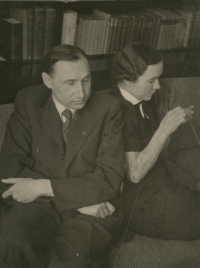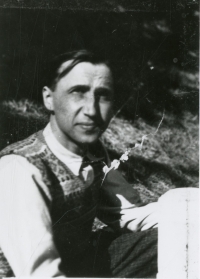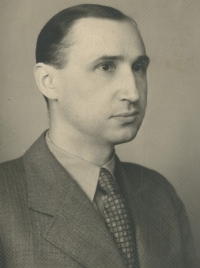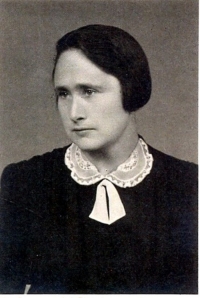PhDr., PhD. Ľubica Droppová, rod. Markovičová
* 1935
-
“One day it happened. It was an ordinary working day and I was just after graduation. My mother was getting ready to go to school, and my father went to work but never came back. We did not know what was wrong with him; two comrades came to our flat and turned it upside down. They found nothing, but I don't even know what they were looking for. They took away all the gold crosses, chains, and bracelets inherited from our grandmothers and great-grandmothers. My parents were so caring that they had set up a deposit book in a bank for each of their daughters, and they even took those away. They even took an envelope, where my father’s salary for the next month was stored. Jana, the middle daughter, saw one hundred crowns, which somehow fell behind the drawer, when they were counting money so eagerly. That was the only thing that we had left, because usually we only lived on our father’s salary. And for a long time from then there was no salary.”
-
“When she came back from the investigations, she was always exhausted. Usually, someone would pick her up by car, so we were scared of every car that stopped by our house. At that time, there were not so many cars like nowadays. But she had to walk all the way back, so she was exhausted not only mentally but also physically. She would wrap a scarf around her head. That helped her for headaches. She would only tell us this: ‘It is a mistake. It is a big mistake. There must be some explanation for this. It will certainly be explained.’ But there has never been any explanation.”
-
“We had to go to village Ľubietová, because it could have been very dangerous, especially for my father. We were in the village and my father was somewhere, I think, in a cottage in the forest. But even there, it was not very safe. From time to time my mum would go to the edge of the village in the evening, and my father would come back from the forest so they could meet. But gradually, even for those people, at whose places we stayed, it was getting dangerous. They did not like us being there anymore. We felt it a bit, too, especially my mother. I remember that once, when the Germans began coming to Slovakia, she said that they should finish off the uprising. She used to say that Germans are only human as well. She spoke perfect German, so she would reassure them that she could talk to them, but in the end it did not work. Even my father was scared, because in that cottage in the forest he felt that he posed a danger for others. Because all the others were only ordinary inhabitants of the village; he was the only one who they would look for. So we had to return, but it was complicated.”
-
Celé nahrávky
-
Bratislava, 27.04.2018
(audio)
délka: 01:45:35
Celé nahrávky jsou k dispozici pouze pro přihlášené uživatele.
The daughter of a major banker who took part in the Slovak National Uprising and was a prisoner of two totalitarian regimes
Ľubica Droppová (nee Markovičová) was born on March 22, 1935 in Bratislava into a family of Slovak intellectuals. Her father, Karol Markovič, was an important economist and financier, and a member of the Slovak anti-fascist resistance movement. Her mother, Viera, nee Záturecká, was a writer. Her father was imprisoned during both totalitarian regimes and survived being in a concentration camp. The Communist regime drove her mother to commit suicide. She grew in Banská Bystrica. She graduated in ethnology at the Faculty of Arts of Comenius University in Bratislava. From 1958 to 1967 she worked at the Department of Ethnography and Folklore of the Slovak Academy of Sciences as a researcher. From 1967 she was the head of the Department of Ethnology of Comenius University. Currently, she is retired and lives in Bratislava.



